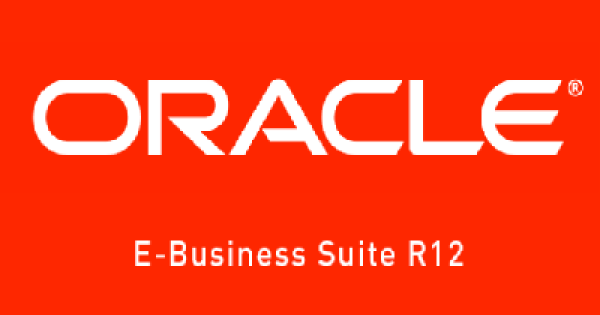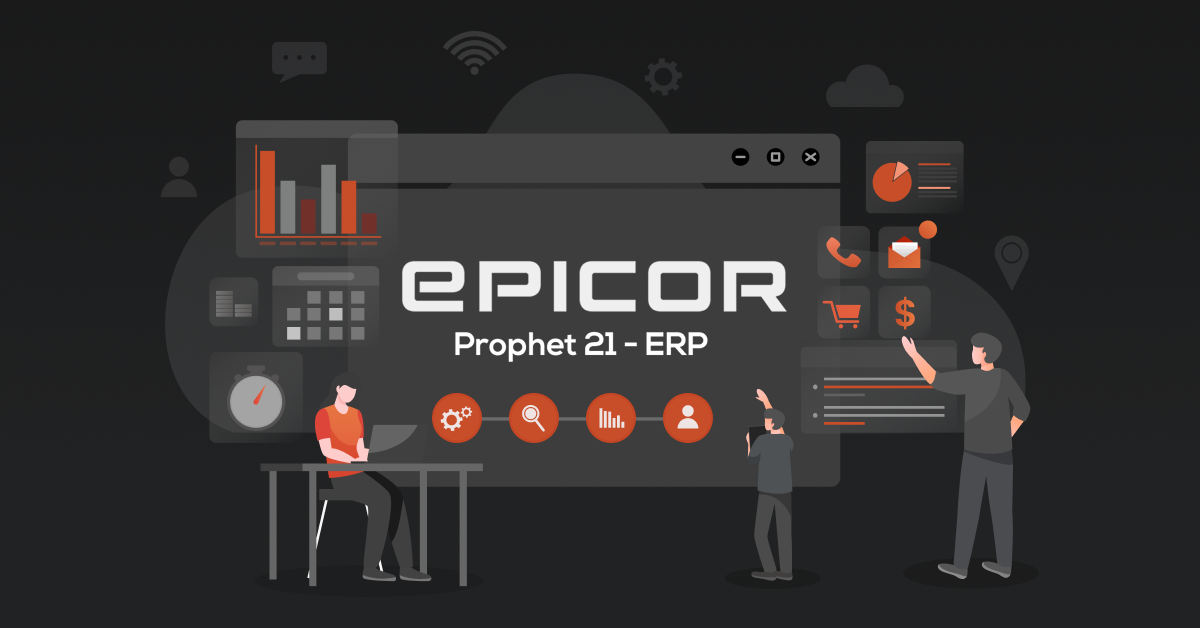Today is evolving faster than ever, and that creates lots of stress on businesses. The constant tug between innovating and catching up with the world can be a painful transition, especially in any industry where this could lead to loss of revenues. The core issue is that legacy enterprise systems don’t grow with your company and become technically obsolete. The cost of upgrading these systems or buying new ones is even higher.
Today, ERPs have become commonplace across large companies, medium, startups alike. ERPs comprises many industries, particularly since the initiation of cloud ERP. Before we jump into learning about Oracle EBS ERP, let’s look into why companies switch to an ERP.
An ERP system reduces repeated processes and reduces the requirement to manually enter information, which not only improves user productivity but excludes the possibility of incorrect data leading to making costly business mistakes. The advantages of implementing an ERP system in a business will also increase everyday business actions by streamlining business processes, which makes it simpler and also efficient for businesses to manage data across all verticals. Think of ERP as additional support and intellect, designed to keep companies on course, noticing each aspect and shaping work life easier and also efficient, from software users down to its clients.
It is a smart choice to look for software solutions that are agile and nimble to upgrade while letting you scale your business operationally fast. This advanced, cloud-based, and unified solution leverages many tools such as machine learning, predictive data analytics, forecasting, and full cloud capabilities to turn your business information into business intelligence.
With an ERP system, you can recognize and generate growth possibilities securing overall industry success and customer satisfaction.
We go in-depth about exploring the Oracle EBS ERP; pricing, industry modules, tech-specs, and its implementation. If you’re a finance manager, entrepreneur, operational head, or any key decision-maker in the market for an ERP, this article is for you.
What is Oracle E-Business Suite ERP?

Oracle E-Business Suite (EBS) ERP variant 12 is an internet-enabled product that capable of being managed from an individual site. Variant 12 is current as of 2018.
A business can operate an individual data center by including a private database, comparable to other ERP products. The suite includes plenty of product lines that users can execute into their professions. Oracle EBS ERP comprises the company’s enterprise resource planning (ERP) product as well as supply chain management (SCM) and customer relationship management (CRM) applications. Each application is licensed separately so businesses can choose the blend that is fitting for their business processes.
The applications discovered in the Oracle EBS ERP include Oracle CRM, Oracle Financials, Oracle Human Resource Management System (HRMS), Oracle Logistics, Oracle Supply Chain Applications, Oracle Order Management, Oracle Transportation Management, and Oracle Warehouse Management System.
Who Can Use Oracle EBS ERP?
Oracle is great in database and backend. It does have a large market in middle-east and a fair presence in North American markets. Its reputation in the financials module is good too, it has won several accolades from its clientele which has given scope for newer modules.
According to market share – SAP, Oracle, and Microsoft Dynamics are the important vendors who are the leaders in significant global markets like North America and Europe.
Several business experts / chief executive officers who wish to implement new ERP software in Fortune 500 organizations will usually end up weighing the industry’s two biggest leaders: SAP or Oracle. While both ERP providers are clear market share dominators and have very well-established product ranges, the strengths, weaknesses, risks, and product roadmaps of these two vendors couldn’t be more different.
It features a novel, intuitive user interface that makes it easy to interact with your clients while managing business.
Below is a partial list of customers that use Oracle EBS ERP:
- Department for Work and Pensions
- National Health Service (NHS) the United Kingdom
- GE Capital, Americas
- Comcast Corporation
Modules Of Oracle EBS ERP
Oracle CRM
The Oracle CRM application gives front-office uses which help companies to improve clients and consumer loyalty and satisfaction. The essential functionality includes marketing, order capture, contracts, field service, and call center functionality. The CRM application also incorporates internet-focused products such as catalogs, content management, and quote and order management.
Oracle Financials
The Financials applications combine General Ledger, Cash Management, Payables, Receivables, Fixed Assets, Treasury, Property Management, Financial Analyzer, and a self-service accounts function.
Human Resource Management System (HRMS)
The HRMS application assists businesses to manage the recruit and retirement process. The application provides users a real-time look at all HR activities, including hiring, time management, training, recompense, benefits, and payroll. The HRMS suite integrates completely with the other EBS applications and supplies users including an analytics bundle that allows the extraction of HR data with ease.
Oracle Logistics
The logistics module enables users to design, maintain, and regulate the flow and storage of products and services within a company. It provides data to plan future demand and safety stock inside the warehouse. The application can create accurate, constraint-based production records and materials systems.
Supply Chain Applications
Supply chain applications control information-driven supply chains. Businesses can foretell market conditions, innovate in response to unpredictable market circumstances, and align operations crosswise global networks. Oracle allows industry-specific resolutions that include product improvement, demand control, sales, and operations preparation, transportation management, and supply management.
Order Management
Organization management applications can streamline and automate a business’s complete sales order administration process, from order declaring and order capture to transport and shipment. Order management also includes EDI, XML, telesales, and web storefronts. Some of the company benefits that can be achieved involve reduced realization costs, reduced order fulfillment cycle period, improved order efficiency, and greater on-time shipment.
Transportation Management
Transportation management (TMS) provides transit preparation and execution skills to shippers and third-party logistics providers. It combines and streamlines transportation preparation, execution, and freight payment. The TMS function gives functionality for all modes of transport, from full truckload to complex air, ocean, and rail shipments.
Warehouse Management System
Oracle EBS ERP Warehouse Management System allows the coordinated flow of goods and knowledge throughout the extensive distribution process. The module implements business rules that can deliver efficient utilization of workers, equipment, and space in the distribution process. Benefits include an acceleration of the movement of products through the supply chain while decreasing lead times and delivering functioning capital, real-time index management, cross-docking, pick-by-line, advanced ship notices (ASN), inbound planning, and management.
Using Oracle EBS ERP Solution?
There are many resources available online that will help you learn Oracle EBS ERP fast with great support. Oracle EBS ERP solution is a powerful ERP product that has great community and documentation to help you hit the ground running.
Of course, if you want to utilize the ERP to its full potential, learning will be essential. Below are some resources that you can use to master the Epicor Eclipse ERP solution:
- Official Oracle EBS ERP solution guide here;
- Official Oracle EBS ERP community resources here;
- Official Oracle EBS ERP blog platform.
Oracle EBS ERP Solution Pricing
Oracle EBS ERP does not disclose pricing information. Prospective customers should contact Epicor for details or you can contact the vendor here to get pricing information for your custom needs. Check out what the users have to say about the Oracle EBS ERP Solution on some of the few review sites? Improve your decision with sites like Capterra or G2 to measure Epicor Eclipse ERP to other ERP solutions by industry, ratings, customer views, pricing, organization size, features, and more.
How To Integrate Oracle EBS ERP Into Your Business?
By using an integration platform as a service you can integrate the Oracle EBS ERP solution into your existing business. Use this comprehensive guide to learn how to integrate the Epicor Eclipse ERP Solution into your business.
DCKAP Integrator is a scalable, flexible & customizable iPaaS that provides pre-built connectors, which you can easily synchronize any data point mapped & modified according to how you want it.
Integrate Oracle EBS ERP with leading eCommerce storefronts, marketplaces, CRM, 3PL, marketing & social channels, or any other software. Synchronize orders and products in real-time and ensure you provide the best possible eCommerce purchase experience for your customers.
DCKAP Integrator already provides a pre-built package that integrates all these data points. It is a GDPR compliant platform that ensures the complete security of your data through encrypted transactions and SSL certifications. Additionally, the DCKAP Integrator platform provides you best-in-class UI and UX, with drag and drop features and minimal coding effort.
In Conclusion
Oracle Corporation (Oracle) provides a broad range of IT solutions.
A broad product portfolio and cloud business and strategic acquisitions offer growth opportunities to the company. Also, transaction processing includes Financials, Supply Chain, Projects, PLM, Sales & Marketing, HR, Services.
Oracle’s EBS ERP product is next only to SAP’s preparation software in sales, and its best-of-breed solution can be found in thousands of corporations across the world. The applications that are included in the E-Business Suite cover the wide range of business processes that are found in any company. The industry-specific extracts supplied by Oracle can reduce the time and support needed to achieve the solution and provide businesses with configured business processes that will grow overall profits.
Contents




